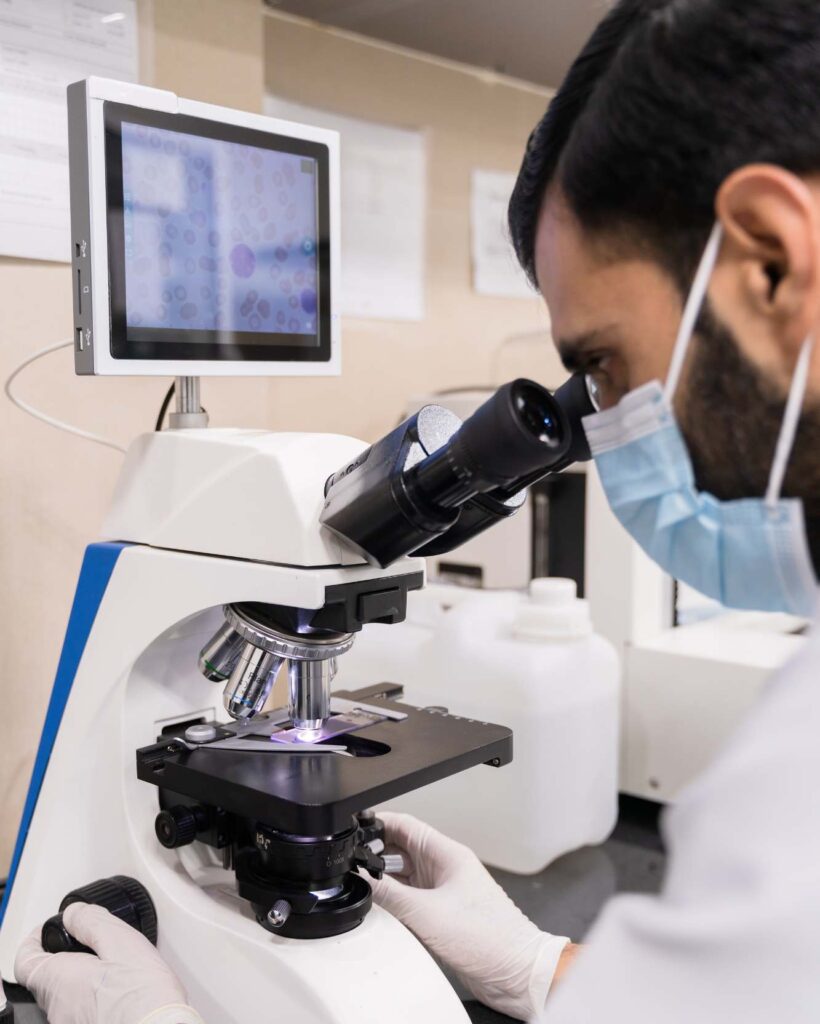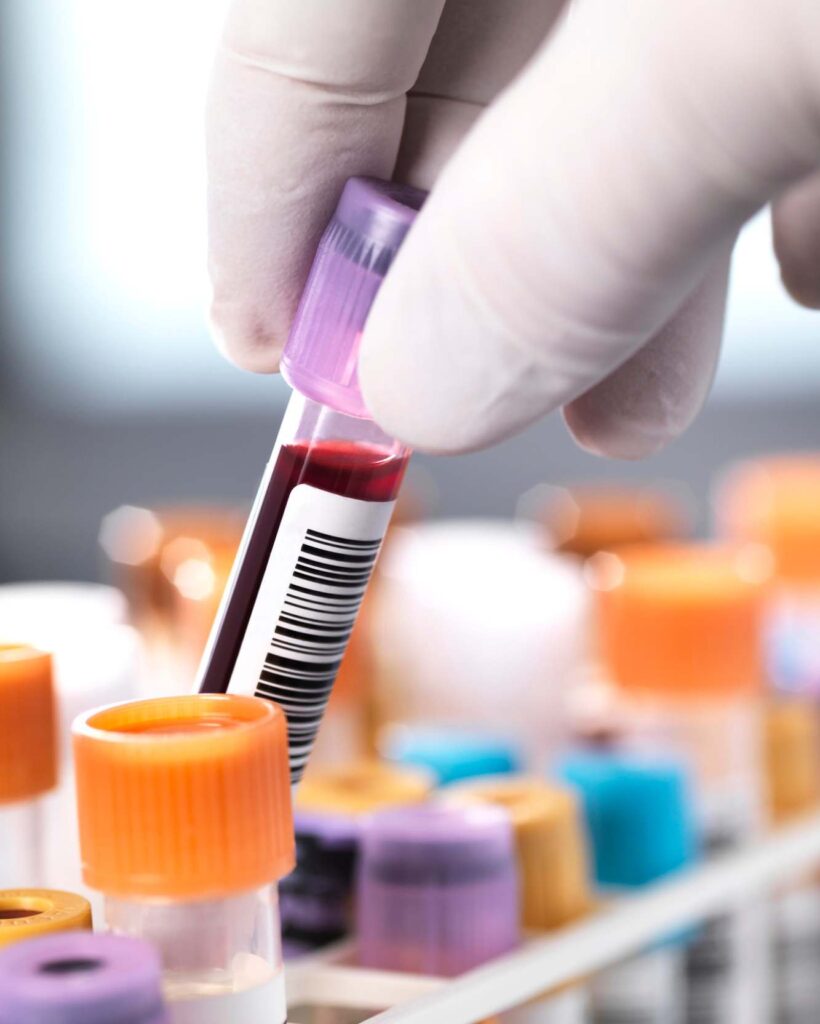
Pathology Labs
Pathology labs play a crucial role in cancer diagnosis and management. They are responsible for examining tissues, cells, and bodily fluids to identify diseases, including cancer.
Founded with a passion for improving cancer outcomes, we bring together cutting-edge technology and specialized expertise in oncological pathology. Our multidisciplinary team collaborates closely with healthcare providers to ensure that every patient receives the most informed and timely diagnosis possible.
Here are the key functions and features of pathology labs:
Key Functions
- Tissue Analysis:
- Pathologists examine biopsy samples from patients to determine the presence of cancer cells. This can include tissues removed during surgery or samples taken through needle biopsies.
- Histopathology:
- Involves preparing thin slices of tissue for microscopic examination. Pathologists assess the tissue structure, looking for abnormal cells and patterns that indicate cancer.
- Cytopathology:
- Focuses on the study of individual cells. This is often used for fluid samples (like fine-needle aspirations) to check for cancer in organs such as the thyroid, breast, or lymph nodes.
- Molecular Pathology:
- Involves analyzing genetic material from tumors to identify specific mutations or markers that can influence treatment decisions, such as targeted therapies.
- Immunohistochemistry:
- Uses antibodies to detect specific proteins in tissue samples, helping to classify tumors and determine their characteristics.





Importance in Oncology
- Diagnosis: Provides definitive diagnoses of cancer, determining the type and grade of tumors, which guides treatment decisions.
- Staging: Helps in staging cancer by providing information about tumor size, grade, and whether it has spread to lymph nodes or other tissues.
- Prognosis: Certain pathological features can give insights into the likely course of the disease, helping to predict patient outcomes.
- Treatment Decisions: Molecular and genetic testing can help identify the most effective treatment options for individual patients.
Quality Control
- Pathology labs adhere to strict quality control measures to ensure accurate and reliable results, often participating in external proficiency testing.
Collaboration
- Pathologists work closely with oncologists and other healthcare providers to ensure that diagnostic findings are integrated into patient care plans.
